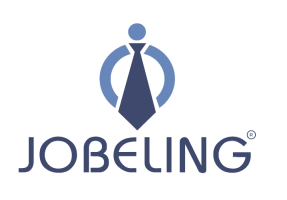“What are you looking for in your next role?” is a common question hiring managers and HR professionals ask during interviews. It’s also one of the most difficult questions to answer because it requires you to think about what you want out of your next role and what the company wants from you. Here’s how to prepare yourself for this critical interview query:
Contents
- 1 Understanding the Question
- 2 Preparation
- 3 Self-Reflection
- 4 Crafting Your Answer
- 5 Aligning Personal Goals and Company Objectives
- 6 Connecting Personal Aspirations With the Role’s Potential Impact
- 7 Expressing Motivation and Passion
- 8 Entry-Level Candidates
- 9 Mid-Level Professionals
- 10 Senior-Level Executives
- 11 Practice and Prepare for The Question
- 12 Conclusion
Understanding the Question

When asked this question, it’s important to understand what the interviewer hopes to discover. What do they want? What are their expectations? What are their concerns? How will they interpret your answer?
The first step in answering this question is understanding what goes through the interviewer’s mind when asking such a broad question. If you can get a sense of what kind of answer would be ideal for them, then providing that response becomes much easier and more natural for you.
Preparation
Before you go into your next interview, it’s important to research the company itself. The more you know about their business and challenges, the better equipped you’ll be to discuss how your skills and experience can help them achieve their goals.
- Learn about the company’s culture: What are they like as employers? Do they have a defined mission statement or core values? Do they value collaboration over competition or vice versa?
- Know who you’re talking to: Who will interview you (the CEO or COO)? What are their responsibilities within the organization? This will help guide your answers when it comes time for questions from those individuals later in the process.
- Research industry trends: This can include statistics about market size, growth rate, and competition levels, among other metrics related to profitability potentials within specific industries, depending on what type of role/industry combination interests me most at this point in my career path.*
Self-Reflection
Before you can answer the question, you must first know yourself. What are your strengths and weaknesses? What do you want to do in your next role? What were some of the biggest challenges that your team faced at work or school, and how did they overcome them?
Know what is important to you when looking for a job by asking yourself these questions:
- What kind of company culture would be best for me?
- Where do I see myself in 5 years (or more)?
- How much money will I make if it means sacrificing my happiness or health?
Crafting Your Answer

Here’s what you can do:
- Practice in front of the mirror. Start by saying, “I’m looking for…” and then practice different answers. See how it sounds, then try another one. Try as many variations as possible until you have the right answer.
- It might be challenging to perceive ourselves objectively, so practice with a friend or member of your family who will offer you honest criticism on your speech and body language. Ask them how they would answer this question if they were asked it at work today and ask them if there are any words or phrases that come across better than others when they hear them from someone else’s mouth versus yours (e.g., “I want” vs. “I’m looking”).Then try the same thing again but with a slightly different emphasis on certain words or phrases–maybe try putting more energy into them by raising your voice just slightly during these parts of the sentence so that people hear what matters most about what you’re saying rather than just glossing over those details because there are so many others packed into such a short response as well!
Aligning Personal Goals and Company Objectives
The most important part of this question is ensuring that your goals align with the company’s goals. If they don’t, then there’s no point in interviewing with them or taking on the role.
When discussing your personal goals and how they align with the company’s objectives, it’s important to show that you clearly understand what both parties expect from each other. You need to demonstrate how you can contribute toward achieving these shared objectives and highlight how the company will help you achieve them in return for their investment in hiring someone like yourself.
Connecting Personal Aspirations With the Role’s Potential Impact
The next step is to align your personal goals with the company’s objectives. This will help you determine if the role is a good fit for you, and if it’s not, what would need to change for it to be so.
You can then use this information to share with them how the role will impact your career trajectory or plans. For example: “I’m looking for opportunities to learn new skills and expand my knowledge base to advance my career.” Or “I am interested in working on projects with an international scope because this aligns with my long-term goal of living abroad.”
Expressing Motivation and Passion
The best way to answer this question is by expressing your motivation and passion for the job. You want to show that you’re excited about the opportunity, so use examples from past experiences with similar companies or industries as evidence of your excitement.
The compensation and perks are important, and job postings should clearly state this. Thankfully, more legislation requiring pay disclosure are becoming effective. Additionally, you’ll have the chance to learn more about it all during your interview.
If you can’t think of any specific examples, talk about how much time and effort you’ve spent researching the role and preparing yourself for it. You should also mention what attracted you most about this particular company or industry (e.g., their mission statement).
Entry-Level Candidates

Entry-level candidates should be prepared to answer this question in a way that’s both concise and clear. The interviewer seeks an honest, specific answer to help them determine whether you’re a good fit for the company. If you don’t know what kind of work you want to do yet, that’s fine! Just be sure not to say, “I’m open to anything,” or “I just want something with more responsibility.”
Instead, talk about what kinds of challenges excite or interest you most–and why those challenges are important enough for someone who doesn’t have much experience yet (like yourself)
Mid-Level Professionals

If you’re a mid-level professional, you can use this question to showcase how your skills and experience will help the company achieve its goals. It’s also a good opportunity to explain how the position aligns with your career aspirations.
- Focus on the company’s mission and values: Start by highlighting how your skillset aligns with the organization’s mission statement and core values. For example, if one of their core values is innovation, mention ways you’ve helped innovate products or processes in previous roles (or outside work).
- Use the job description as an opportunity to show off relevant competencies: Next step is identifying any specific skill sets or competencies listed within their job description (or mentioned during interviews). This could include technical knowledge such as coding languages or soft skills like communication skills which often aren’t included but are still important for success at most companies today!
Senior-Level Executives

If you’re a senior-level executive, be careful about saying that your goal is to become CEO. While many CEOs are promoted from within, and this can be an attractive option for job seekers, it’s also important not to imply that the only reason for leaving your current role is because it doesn’t lead directly into the corner office or have enough responsibility in terms of managing people.
Similarly, saying that you want more money or a bigger title may come across as greedy during an interview – especially if it’s said without any context beyond those two points (i.e., “I’m looking for more money” or “I want a promotion”).
Practice and Prepare for The Question
Before you sit down for your next interview, practicing your answer is important. The best way to do this is by writing out your response and practicing in front of a mirror, camera, or group of people. This will give you a chance to see how well-prepared and confident you look when answering this question.
- Practice with a friend: Ask them what they think when they hear, “What are you looking for in your next role?” Then ask them if they have any questions about the position or company they would like answered before making any decisions about accepting an offer.*
- Write out an answer: Write down all the things that matter most to you when considering whether or not it makes sense for both parties involved (you & employer). Next, write down how those needs align with what this particular job offers.*
Conclusion
In conclusion, the question “What are you looking for in your next role?” is a great opportunity to show off your employee and professional skills. You can use this question to highlight why you’re so passionate about what you do, but it’s also important to avoid getting too caught up in talking about yourself and forget about what the company needs. Remember that if you want this job badly enough, then there should be no problem answering this question confidently!
Donwload Jobeling from App Store or Play Store and connect with thousands of employers looking to hire you based on your skill, interests and CV.
